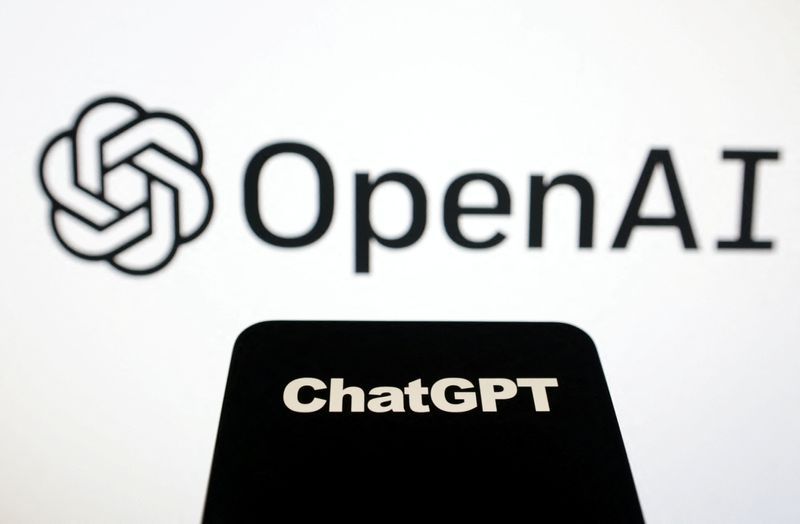OpenAI has taken a bold step towards democratizing access to artificial intelligence (AI) by allowing users to interact with its popular chatbot, ChatGPT, without the need to create an account. This move signifies a significant shift in OpenAI’s approach, making ChatGPT more readily available for anyone curious about the capabilities of AI.
Why Ditch the Account Requirement?
Previously, using ChatGPT necessitated creating an account with OpenAI. However, they’ve eliminated this barrier to entry for ChatGPT specifically. This decision aligns with OpenAI’s mission statement, as outlined in a recent blog post: “We want to make AI accessible to everyone.” It’s important to note that this account-free access is currently in a rollout phase, so some users might experience a temporary wait before they can take advantage of it.

Exploring the Trade-offs: Account vs. No Account
While eliminating the account requirement makes ChatGPT more accessible, it’s crucial to understand the limitations involved. Here’s a breakdown of the key differences:
Using ChatGPT with an Account:
Save and Share Conversations: Account holders can store their interactions with ChatGPT for future reference or share them with others.
Advanced Features: An account unlocks access to advanced functionalities like voice-based interactions and the ability to provide custom instructions to ChatGPT.
Full Access to Content Policies: Account users benefit from the complete set of content policies governing ChatGPT’s responses.
Using ChatGPT Without an Account:
Limited Functionality: Users forego the ability to save or share conversations, and advanced features like voice interaction and custom instructions are unavailable.
Restricted Content Policies: OpenAI mentions “slightly more restrictive content policies” for account-free users. The exact specifics of these limitations remain unclear.
OpenAI has yet to elaborate on the details of these restricted content policies. However, we can infer that they might involve potentially sensitive topics or areas where OpenAI deems it necessary to exercise greater control over the information ChatGPT generates.
The Meteoric Rise of ChatGPT
Since its introduction in late 2022, ChatGPT has witnessed a phenomenal rise in popularity. It rapidly established itself as a leading AI chatbot solution, garnering over 100 million weekly users across a staggering 185 countries. Just in February 2024, ChatGPT recorded an impressive 1.6 billion visits, demonstrating its dominance compared to emerging competitors like Google’s Gemini and Microsoft’s Copilot. This widespread adoption underscores ChatGPT’s position at the forefront of AI chatbot technology, attracting a global audience eager to explore the possibilities of advanced AI interaction.
OpenAI’s Move: A Step Toward AI Democratization
OpenAI’s decision to allow account-free access to ChatGPT represents a significant leap forward in making AI technology more approachable. By eliminating the account barrier, OpenAI opens the door for a broader audience to engage with and experience the potential of AI. This move aligns with the growing global interest in AI technologies across various sectors.
The Future of AI Accessibility
OpenAI’s move with ChatGPT is a testament to the evolving landscape of AI accessibility. As AI technologies continue to develop, we can expect further strides towards making them more user-friendly and broadly available. Whether through simplified interfaces, expanded account-free access, or the emergence of new platforms, the future of AI seems poised to be increasingly inclusive and approachable.
FAQs
Q: Does using ChatGPT without an account limit its capabilities?
A: Yes, users choosing the account-free route will experience limitations. They cannot save or share conversations, and advanced features like voice interaction and custom instructions are unavailable. Additionally, OpenAI has implemented “slightly more restrictive content policies” for account-free users, although the exact specifics remain unclear.
Q: Why did OpenAI remove the account requirement for ChatGPT?
A: As stated in a recent blog post, OpenAI’s goal is to “make AI accessible to everyone.” This move aligns with their mission of democratizing access to AI technology and allowing a wider audience to explore its potential.
Q: Is ChatGPT completely free to use, even without an account?
A: Yes, currently, interacting with ChatGPT does not incur any direct costs, regardless of whether you have an account. However, it’s important to remember that OpenAI is a research lab, and their long-term monetization plans for ChatGPT might evolve in the future.
Q: What are some potential drawbacks of using ChatGPT without an account?
A: The primary drawbacks include the inability to save or share conversations and the restricted access to advanced features. Additionally, the limited content policies for account-free users might impact the types of responses ChatGPT can generate.
Q: Will other OpenAI products like DALL-E 3 offer similar account-free access in the future?
OpenAI hasn’t announced any plans yet regarding account-free access for DALL-E 3 or other products. DALL-E 3 currently requires an account, and it’s possible that using it might involve associated costs due to its more resource-intensive nature compared to ChatGPT.
Q: How does ChatGPT compare to other AI chatbots like Google’s Gemini and Microsoft’s Copilot?
ChatGPT has emerged as a leading AI chatbot solution with over 100 million weekly users. While both Gemini and Copilot offer impressive capabilities, ChatGPT’s current user base and reported February 2024 visit statistics suggest it holds a dominant position in the AI chatbot market.




